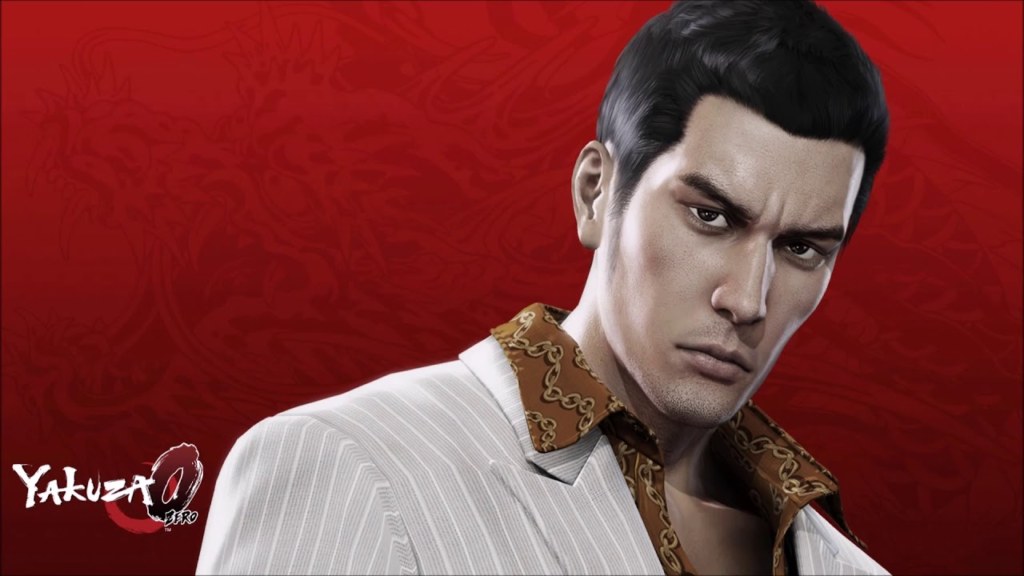Introduction to Baka Mitai
“Baka Mitai” is a phrase that has resonated with many, particularly fans of Japanese culture and the popular video game franchise “Yakuza.” Translated roughly as “I’ve been a fool,” this phrase encapsulates a deep sense of regret, often evoking emotions tied to lost love and nostalgia. The song associated with it has gained immense popularity, especially in meme culture, but its roots run deep in the narratives explored within the Yakuza games. In this article, we’ll dive into the essence of “Baka Mitai,” exploring its background, cultural impact, and the emotions it conveys.
The Origins of Baka Mitai

The Yakuza Franchise
The song “Baka Mitai” first appeared in “Yakuza 0,” which was released in 2015. Developed by Sega, the Yakuza series immerses players in the underbelly of Japan’s criminal world, combining intense action with rich storytelling. This unique blend allows players to explore themes of loyalty, betrayal, and heartbreak, making it a narrative powerhouse.
In “Yakuza 0,” players are introduced to Kazuma Kiryu and Goro Majima, two characters whose paths intertwine in a tale that explores ambition and loss. The game’s music plays a crucial role in setting the emotional tone, and “Baka Mitai” stands out as a poignant ballad that perfectly captures the essence of longing and regret.
The Song’s Significance
“Baka Mitai” is performed in a karaoke mini-game within “Yakuza 0.” Players can sing the song, which not only adds a layer of fun but also deepens their emotional connection to the characters. The lyrics tell a story of a heartbroken lover reflecting on their mistakes, and this sentiment resonates with anyone who has experienced love and loss.
The song is a poignant reminder of the human experience. It’s not just about the lyrics; it’s about the feelings they evoke. The combination of heartfelt lyrics and a soulful melody creates a nostalgic atmosphere, making it memorable for those who have played the game.
Cultural Context
The phrase “Baka Mitai” transcends its literal translation, embedding itself into the fabric of Japanese pop culture. Its usage in the Yakuza series reflects broader societal themes of regret and emotional vulnerability, which are often explored in Japanese media. In a culture that traditionally values stoicism, songs like “Baka Mitai” provide an outlet for expressing feelings that are often kept hidden.
This cultural backdrop enriches the song’s impact, as it resonates not just with gamers but also with those familiar with the broader themes in Japanese storytelling. The vulnerability expressed through “Baka Mitai” connects with universal experiences, allowing it to transcend cultural barriers.
The Lyrics: A Deeper Dive
Emotional Landscape
The lyrics of “Baka Mitai” paint a vivid picture of heartache and introspection. The protagonist reflects on their foolishness, lamenting over a lost relationship and the choices that led to their current state. This self-reflection is a powerful theme, as it invites listeners to confront their own experiences of love and loss.
As the song unfolds, the emotional depth intensifies. The use of metaphors and imagery in the lyrics allows listeners to visualize the pain of separation. Phrases that evoke memories of shared moments and the ache of unfulfilled dreams resonate deeply, creating a relatable narrative for anyone who has faced similar circumstances.
Musical Composition
Musically, “Baka Mitai” is characterized by its slow tempo and melancholic melody. The arrangement combines traditional Japanese instruments with modern orchestration, creating a sound that feels both timeless and contemporary. This blend enhances the emotional weight of the lyrics, making each note feel charged with longing.
The vocal performance is equally compelling. The singer’s delivery captures the essence of sorrow, and the way emotions swell throughout the song draws listeners in. It’s this combination of lyrical depth and musicality that elevates “Baka Mitai” from mere entertainment to an anthem of heartbreak.
Memes and Internet Culture
In recent years, “Baka Mitai” has surged in popularity within meme culture, particularly on platforms like TikTok and Twitter. The “Baka Mitai” meme typically features video clips of characters, often from the Yakuza series, singing the song, juxtaposed with humorous or relatable situations. This unexpected pairing of heartfelt lyrics with comedic visuals has created a unique space for the song in modern digital culture.
While some may view these memes as trivializing the original message, they serve to broaden its reach. By connecting with a younger audience, the song introduces themes of regret and nostalgia to those who may not be familiar with the Yakuza franchise. This cultural crossover has turned “Baka Mitai” into a bridge between traditional storytelling and contemporary internet trends.
The Emotional Impact of Baka Mitai
Resonating with Personal Experiences
For many fans, “Baka Mitai” strikes a personal chord. The lyrics articulate feelings that are often difficult to express. In a world where vulnerability can be seen as a weakness, this song serves as a reminder that it’s okay to feel deeply and to acknowledge one’s mistakes. The raw emotion embedded in the song resonates with listeners from various backgrounds, allowing them to confront their own experiences of love and regret.
The universality of the song’s themes means that it can touch anyone, regardless of their cultural background. Whether someone has experienced heartbreak, loss, or the bittersweet nature of memories, “Baka Mitai” provides a soundtrack for those feelings. It’s a shared human experience, captured beautifully in song.
Community and Connection
The Yakuza fandom has embraced “Baka Mitai,” creating a community around shared experiences and emotions. Online forums and social media platforms have become spaces for fans to discuss their interpretations of the song and share personal stories. This sense of community fosters connections among individuals who may not have otherwise crossed paths, united by their love for the song and the feelings it evokes.
Moreover, the meme culture surrounding “Baka Mitai” has allowed for lighthearted interactions, balancing the heavy themes of the original song with humor. This playful approach has enabled fans to engage with the song in diverse ways, whether through heartfelt discussions or comedic remixes.
A Reflection on Regret
At its core, “Baka Mitai” encourages introspection. The song invites listeners to reflect on their past choices and the impact of those decisions on their lives and relationships. It acts as a gentle nudge, reminding us of the importance of self-awareness and growth.
The notion of regret is universal; everyone has experienced moments where they wished they had acted differently. “Baka Mitai” captures this sentiment, transforming it into a powerful anthem that resonates deeply with those who listen. The song becomes a cathartic release, allowing individuals to process their feelings and find solace in shared experiences.
The Broader Cultural Impact of Baka Mitai
Influence on Japanese Pop Culture
“Baka Mitai” is not just a song; it has become a cultural phenomenon in Japan and beyond. Its inclusion in the Yakuza series highlights the importance of music in storytelling, particularly in video games. The song has sparked conversations about the role of music in conveying emotions and narratives, leading to a broader appreciation for the artistry behind game soundtracks.
Moreover, “Baka Mitai” has influenced other media, inspiring artists and creators to explore similar themes of regret and nostalgia. Its success has encouraged a wave of songs that delve into emotional storytelling, showcasing the power of music to connect with audiences on a deeper level.
Global Reach and Recognition
The global reach of “Baka Mitai” is a testament to the power of the internet in transcending cultural boundaries. As memes spread across social media platforms, the song has garnered a diverse audience, leading to increased interest in the Yakuza series and Japanese pop culture as a whole.
Fans from various countries have embraced “Baka Mitai,” often translating its lyrics and sharing their interpretations. This collaborative effort not only broadens the song’s appeal but also fosters cross-cultural understanding, highlighting the universal nature of its themes.
A Gateway to Japanese Culture
For many newcomers, “Baka Mitai” serves as a gateway into the rich tapestry of Japanese culture. The song encapsulates elements of traditional music, storytelling, and emotional expression, piquing interest in other aspects of Japanese art and entertainment.
As more individuals discover the song, they often explore the Yakuza franchise, leading to a deeper appreciation for Japanese video games and their narratives. This curiosity encourages fans to engage with the culture in various ways, whether through learning the language, exploring other forms of media, or participating in discussions about the themes and stories that resonate with them.
Conclusion: The Enduring Legacy of Baka Mitai
A Timeless Anthem
“Baka Mitai” has firmly established itself as a timeless anthem of regret, nostalgia, and emotional vulnerability. Its ability to connect with listeners on a personal level has solidified its place in both the Yakuza franchise and the broader landscape of Japanese pop culture. The song serves as a reminder that it’s okay to feel deeply and to reflect on our past choices, a sentiment that resonates across cultures.
Bridging Generations
As “Baka Mitai” continues to thrive in meme culture and beyond, it bridges generations of fans. Whether through heartfelt performances, comedic interpretations, or poignant discussions, the song remains a significant part of contemporary discourse on love and loss. Its legacy is a testament to the power of storytelling in all its forms, reminding us that our shared experiences can unite us in unexpected ways.
Looking Ahead
As we move forward, “Baka Mitai” will undoubtedly continue to evolve. Its influence on music, gaming, and internet culture will persist, inspiring new generations to explore the depths of human emotion. Whether through nostalgic reflections or humorous memes, the song’s essence will endure, inviting listeners to embrace their own experiences of regret and growth.
In the end, “Baka Mitai” isn’t just a song; it’s a heartfelt exploration of what it means to be human, to love, to lose, and to reflect. Its impact will resonate for years to come, solidifying its place in the hearts of fans around the world.




